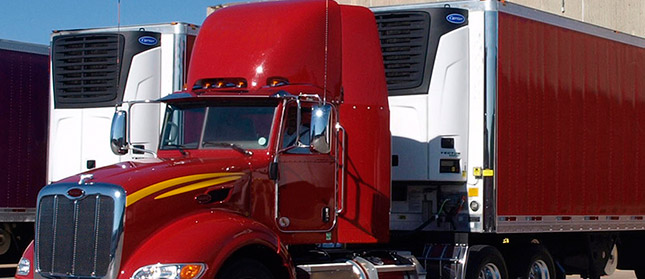
The Canadian Trucking Alliance remains soundly committed to reducing the trucking industry’s carbon footprint; but there’s more Ottawa can do to help carriers reach their goals and not impede environmental progress.
In its federal pre-budget submission, CTA outlined how the environment is a clear priority for the industry, which is currently engaged in preparing for mandates aimed at reducing GHGs and other emissions from the sector. As the pre-budget submission notes, the trucking industry is one of the only sectors impacted by both equipment emissions regulations as well as carbon pricing.
As carriers prepare for a new round of GHG emission-reduction rules on new engines, trucks and trailers, CTA is urging the government to adopt the Alliance’s SMART approach, designed to avoid equipment reliability issues associated with previously mandated, untested equipment and technologies which proved unsuitable for Canadian operating conditions.
“The industry’s negative experience with the installation of emission reduction equipment … has created a level of mistrust within the industry when it comes to regulating unproven technology,” the submission notes.
Meanwhile, the submission notes the industry is advancing toward a more integrated ‘enviotruck’ concept to meet current and future carbon emission targets, including modern fuel efficient engines; alternative powertrains; aerodynamic tractor and trailer devices; single wide-base tires; and a wide array of anti-idling technologies, which allow truckers to run refrigeration units and hotel amenities much more fuel efficiently.
However, in its 2016 budget, Ottawa introduced a measure that would no longer allow transportation companies to apply for federal excise tax refunds on diesel fuel used for these devices to generate electricity.
This motion discourages transportation companies from investing in technologies to reduce the industry’s carbon footprint and adds cost to the safe transportation and handling of food products.
“Not only do these technologies greatly assist our industry in meeting the emission reduction targets we are responsible for, but they are also vital to the operation of our businesses and the customers we serve, particularly in the agriculture, food and pharmaceutical sectors,” says CTA president David Bradley. “This measure is unfair and costly and it would send a wrong message to the marketplace.”
<< CTA has developed a one-page infographic outlining the important excise tax refund issue for federal MPs while calling on the government to change its budget measure. To send a copy (EN or FR) of the infographic to your federal MP with just one click, go here.>>
However, to accelerate these aforementioned technologies into the marketplace and expedite environmental improvements, CTA says revenues generated from the excise tax on diesel fuel – which currently flows into general revenues – and any potential funds generated from carbon pricing mechanisms, need to be reinvested back into the industry now more than ever.
CTA pointed out that accelerated CCA rates would be particularly helpful in spurring market penetration of these alternate power vehicles and further assisting the industry in meeting its GHG Phase II responsibilities.
“There is ample good reason to eliminate the excise tax and bring diesel fuel taxation within the GST/HST envelope,” says Bradley. “At the very least, the revenue it generates should be dedicated to policy purposes related to the industry that pays the tax. So, why not start with supporting some of these technologies, which at least have the benefit of bridging the industry’s environmental goals with those of both government and society?”
